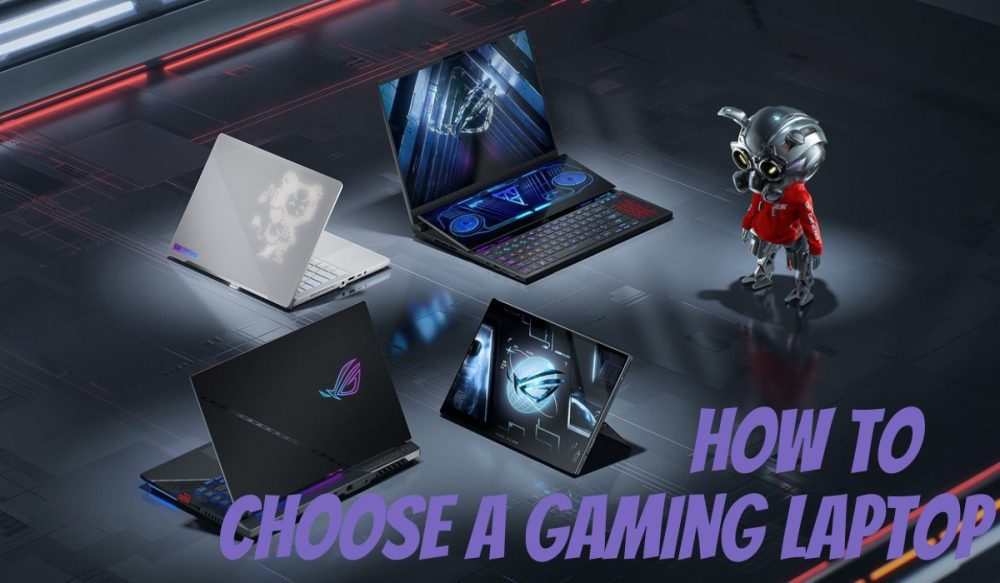
In the vast world of gaming laptops, each choice is a secret full of promise and challenge. Finding the perfect laptop is not just about choosing powerful specs, but also the delicate balance between style and technology.
So, how to choose a gaming laptop? Where to begin when there are so many brands and factors to consider? The hallmark of gaming laptops is their high mobility, compactness, making crucial hardware components like the processor and graphics card soldered to the motherboard, making them challenging to replace. These factors directly impact the performance of the gaming laptop. Additionally, factors such as image quality, touchpad, keyboard, and cooling system should also be taken into account.
Table of Contents
Advantages of laptops over desktops for gamers
On-the-go gaming: Laptops give players the flexibility and convenience to play their favorite games wherever they are or while traveling.
Built-in battery: The ability to play games without being connected to a power source makes it possible to continue playing during brief power outages.
Contemporary Design and Aesthetics: Gaming laptops frequently have streamlined, contemporary designs that appeal to customers who value looks above performance.
Speedy Setup: In contrast to desktop computers, which may require assembly and cable management, laptops require less setup and are ready to use right out of the box.
Configuration Requirements
Selecting components to ensure the best performance for gaming is a crucial part of configuring a gaming laptop:
The Central Processing Unit (CPU)
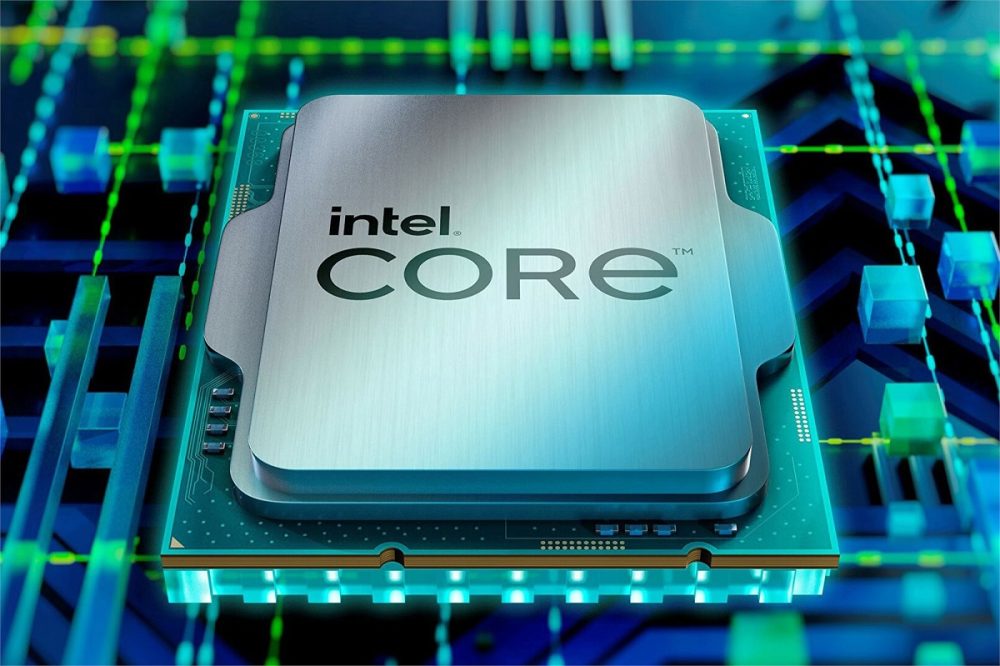
CPU is a gaming laptop brain and it cannot be replaced. In addition to executing instructions given by the system software, the CPU transmits signals to the various parts of the computer. The CPU has two important specifications: cores and clock speed.
The pace at which the CPU obtains and executes instructions is determined by its clock speed. In general, a CPU operates faster the higher its clock speed. (Expressed in GHz)
Number of cores: A CPU may contain several cores, each of which functions as a separate processing unit. Your CPU can handle more tasks if it has more cores.
Graphics Processing Unit (GPU)
For gaming, a dedicated graphics card is essential, similar to the CPU, the GPU is also non-replaceable. Higher-end NVIDIA or AMD GPUs offer smoother gameplay and superior visual quality. Pixels on the screen are created by a GPU. It collaborates with the CPU to deliver fluid frame rates and high-definition gameplay. Every laptop has a GPU, them are built into the motherboard.
RAM size
Games often consume a significant amount of RAM, so we recommend using 8GB or more. If you can, get a gaming PC with 32GB of RAM.
If you can’t afford a laptop with 32GB of RAM right away, you can upgrade it in the future. Many gaming laptops have upgradeable memory, so if you’re handy with a screwdriver, you may want to consider increasing this later.
Storage capacity and type
SSD or hard drive? How come not both? While most gaming notebooks additionally feature a tiny SSD to use as a boot drive, some low-cost gaming laptops will just include a single best hard disk (often 1TB). In a low-cost system, a 1TB HDD and a 128GB SSD are frequently used in combination. You might observe faster loading times if you get a larger SSD, but the price increase will be significant. Make sure the HDD you purchase is 7,200 rpm rather than 5,400 rpm. Similar to RAM, gaming notebooks typically allow for storage upgrades. Therefore, you can insert a 2TB or larger HDD if you require more space.
Hybrid drives—which combine the speed of an SSD and the storage capacity of an HDD—come installed in certain gaming laptops. This strikes a balance between storage capacity and performance. To free up space on the laptop’s internal storage, think about storing non-essential data or game backups in the cloud.
Display and resolution
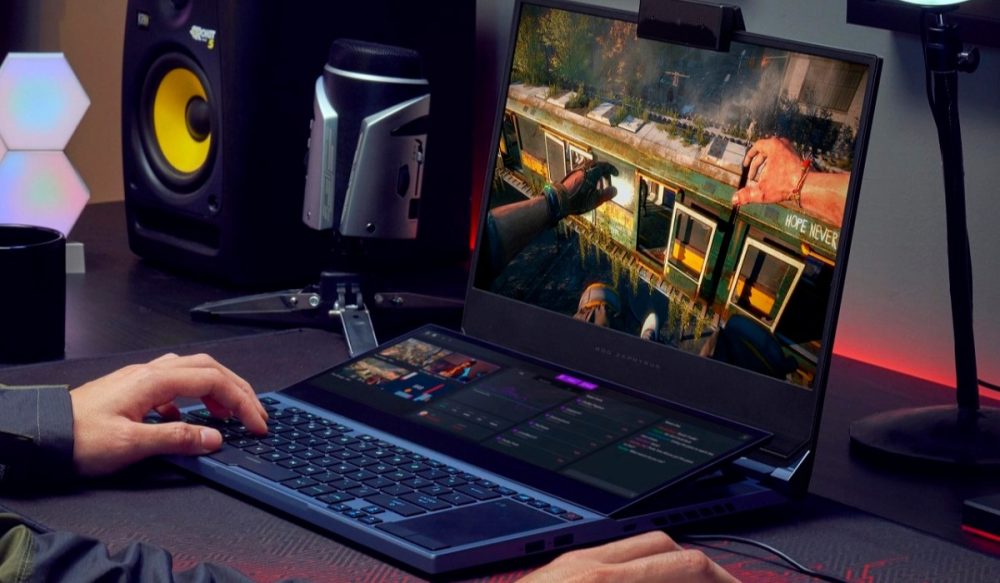
The visual quality and gaming experience on a laptop are mostly dependent on the display and resolution. Although the ideal screen size is a matter of taste, 15 to 17 inches are common sizes for gaming laptops. Greater immersion is possible with larger screens, although the laptop may become less portable as a result.
If you want clear, detailed images, pick a monitor with a minimum resolution of 1080p (full high definition). For more expensive gaming laptops, higher resolutions like 1440p (Quad HD) or 4K (Ultra HD) are available, which offer improved clarity.
Keyboard and touchpad
An entry-level gaming keyboard will have chiclet keys that are backlit with LEDs. Generally speaking, we want keys that have more than 1.5 millimeters of travel; 2 millimeters is even better. By doing this, you can avoid “bottoming out,” or striking the keyboard’s frame. In some very high-end computers, mechanical keys are even available.
Cooling system and temperature
An effective cooling system will help the gaming computer operate more smoothly. If your laptop is already experiencing overheating problems, possibly due to damaged or dusty vents. For a typical workload, any temperature between 40 and 65°C (104 and 149°F) is regarded as safe. During the operation of more demanding applications or games, the typical CPU temperature range may rise to 70–80°C (158–176°F).
Read more: How To Cool Off A Laptop – Simple Yet Extremely Effective
Design and Weight
The aesthetic appeal and usability of a gaming laptop are significantly influenced by its design, weight, size, and materials construction. When assessing these elements, take into account the subsequent factors:
Size and weight suitable for mobility needs
A gaming laptop with a 15.6-inch screen that is reasonably sized and has 1080p resolution for high-quality video output and a 240Hz refresh rate to ensure smooth motion transitions weighs about 4.19-7.00 lbs
Design and build materials
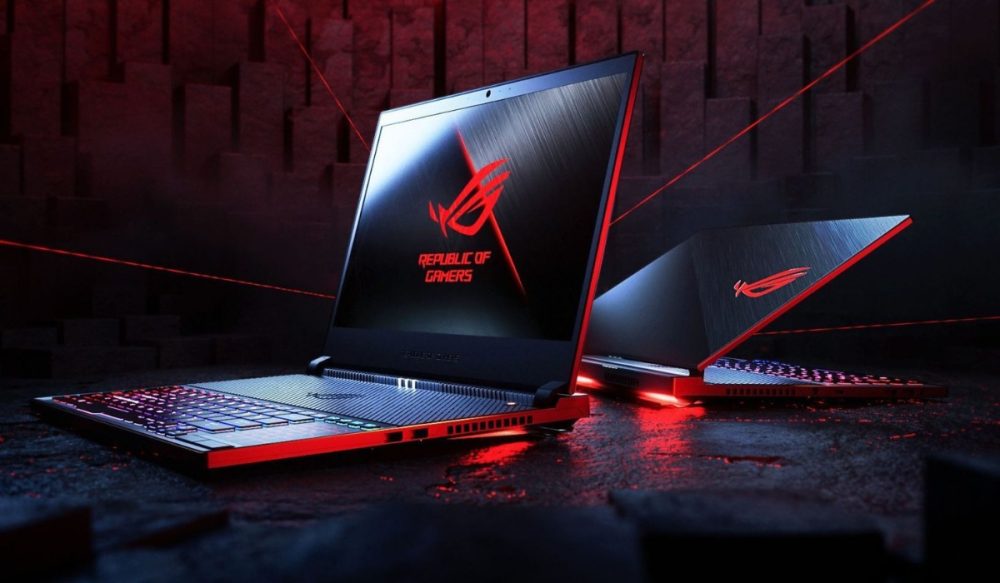
There are several different styles of gaming laptops that range from subtle and elegant to bold and gaming-focused. Choose a design that reflects your style and sense of aesthetics. About the construction materials: lighter but not as strong as metal. It is still feasible to make something sturdy with premium polymers. Equal parts durability and weight; are commonly seen in top-tier gaming laptops.
Battery life
The high power consumption is a common characteristic of gaming laptops, which can reduce battery lifespan. To maximize energy efficiency, make use of the operating system’s power management settings. Depending on your demands, change the parameters to balance battery life and performance. Reducing the graphics settings can help extend battery life and ease GPU pressure.
Connectivity and Ports
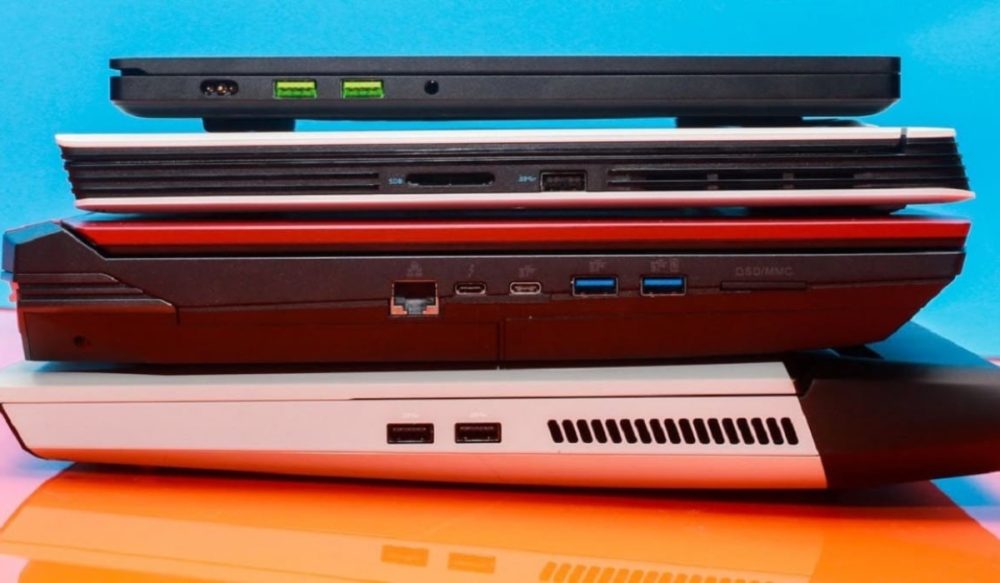
It has multiple USB ports (USB-A and USB-C) so you may connect external storage, gaming devices, and other accessories. Faster data transfer rates are available with USB 3.0 or above. You may extend your desktop or improve your gaming experience by connecting external monitors or game displays to HDMI.
To minimize latency when playing online games, a reliable and fast-wired internet connection requires an Ethernet port. For quicker data transfer, look for Gigabit Ethernet.
Seek out the most recent Wi-Fi standards (Wi-Fi) to ensure more dependable and swift wireless connections. For high-speed data transfer and online gaming, this is essential. To connect wireless devices like mice, gaming controllers, and headphones, bluetooth connectivity is required.
Price and Budget
The majority of high-end gaming laptops are over $2,500, and a decent mid-range gaming laptop falls between $900 and $1600. When looking for a gaming laptop, it’s crucial to keep in mind to set a budget and adhere to it.
Look into and contrast gaming laptops that fit within your budget. Compare the features, performance, and specifications of various laptops that fall within your budget to determine the overall value for the money.
Conclusion on how to choose a gaming laptop
Your budget will determine the most suitable gaming laptop for you. If budget is not an issue, consider investing in the best gaming laptops. It’s important to note that the CPU and GPU are non-replaceable components in gaming laptops. RAM and storage can be upgraded later if desired. Additionally, other components such as the display or audio can be purchased separately to enhance the gaming experience.
Read more: Gaming Laptop vs Gaming Desktop – Which is the Right Choice for You?
